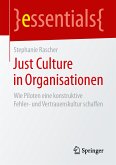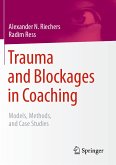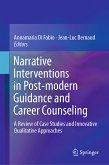This book reports on an empirically-based, theoretical model of coaching culture development over four stages. This is the first model of coaching culture development that goes beyond the listing of stages and strategies in the academic literature based on pracademic experience. It is a dynamic, process model which informs practitioners of how to develop a coaching culture in organisations. Each stage is explained in terms of how coaching is conceptualised by organisational leaders, the motivation for introducing coaching into the organisation, the organisational members who are the recipients of coaching, and those who are involved in delivering the coaching at each stage. The model contributes to the academic literature and the growing calls for coaching to become a discipline in its own right.
Dieser Download kann aus rechtlichen Gründen nur mit Rechnungsadresse in A, B, BG, CY, CZ, D, DK, EW, E, FIN, F, GR, HR, H, IRL, I, LT, L, LR, M, NL, PL, P, R, S, SLO, SK ausgeliefert werden.









